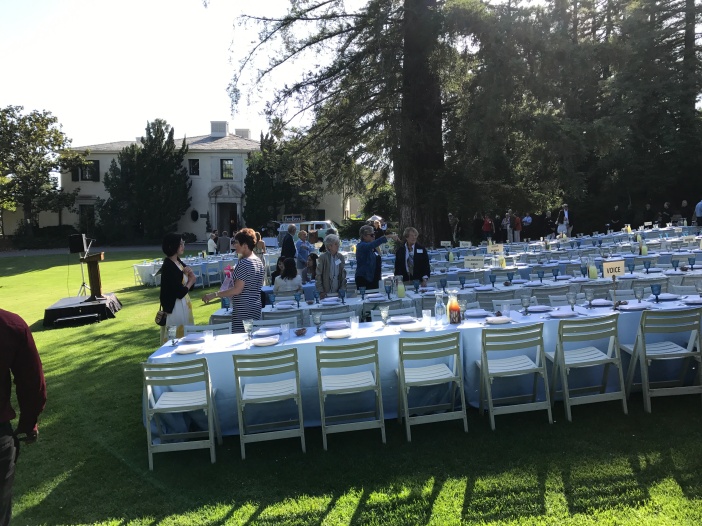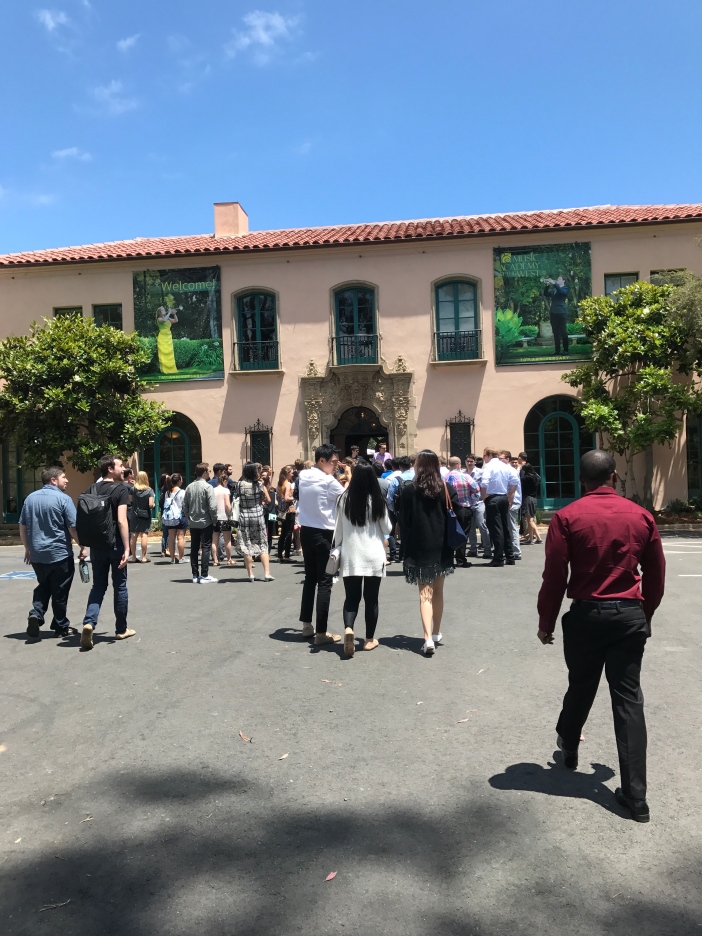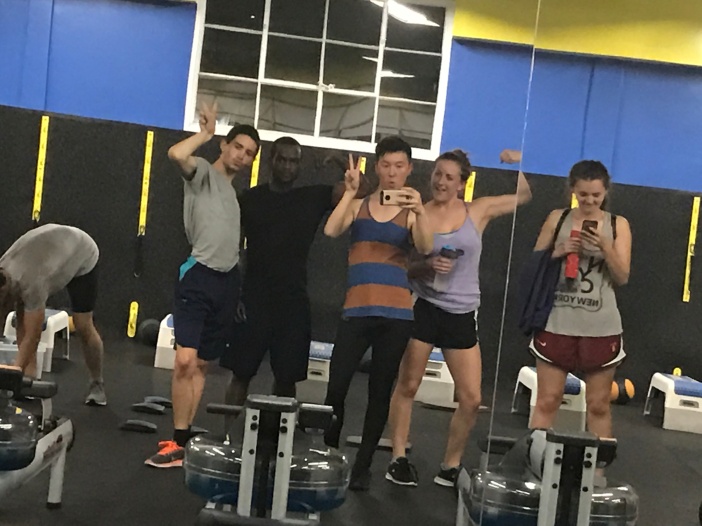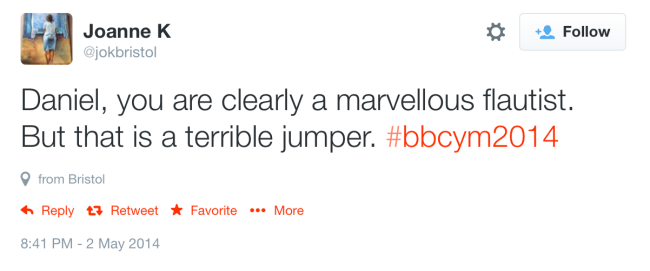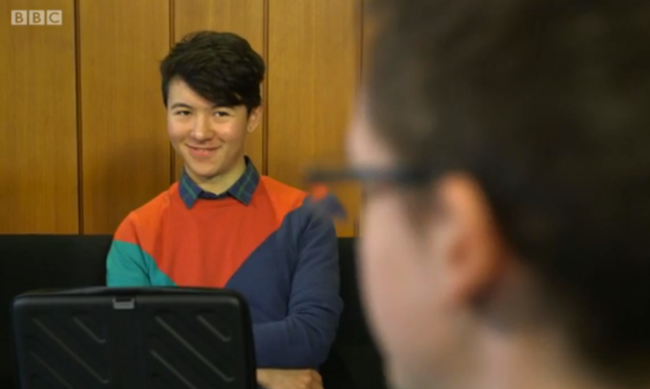I have been thinking a lot recently about how much better my mental health has been since leaving Oxford. How much of this is to with having more time to actually breathe inside my head, how much of this is due to the university being a terrible place for mental health, and how much of this is due to being able to pursue performance fully? Probably a bit of everything. Anyway, I thought I’d discuss these issues a bit as it is always helpful to remind yourself that everyone is in it together.
I’m writing this for myself to remind myself of this stuff, and hope that reading might benefit anyone else 🙂 I’ve had so many friends with deep depression and have come to realise that supporting someone will only go so far, and if someone’s not in the right place to be able to help themselves, they’re not going to be able to take your help. Then they need serious counselling and help, not reading some blog post. But if reading this benefits one person, then that’s already gr8!!!
Hey people’s brains
What an issue.. As fun and enriching as it can be, I feel like the act of pursuing performance (specifically classical/orchestral in my case, but I’d imagine a lot of this applies to other mediums too) is a cocktail designed to induce various mental collapses at somewhat regular intervals! woo hoo…
First off – the negative side. There are many kinds of contradictions in attempting to become a pro musician. You’ve found the thing you love doing absolutely the most in the world (hopefully). Yet most have to learn to live with with constant self-doubt on our shoulders: “what if I mess up”… “what if I’m not good enough in general” will sound familiar to many. Even onstage, the voices often linger, and it is so easy to get stuck in your head.
You also have to stomach a lot of rejection and criticism when applying for auditions and competitions etc, and also from instrumental teachers when trying to improve s generally. At music college you’re constantly guided towards comparing yourself to others through competitions, group classes and more; generally a very unhealthy thing to do mentally yet, annoyingly, pretty necessary if you really want to improve. Perhaps worryingly, this competitive atmosphere is uncritically encouraged by a lot of professors, who often don’t seem to have much idea of pastoral care, and the different needs of people at who are different stages.
Of course, there’s also the uncertainty of the future: most people have no idea whether they’re going to be able to make it in this profession (arguably to a greater degree than for many other career paths), which is a recipe for much mental unrest.
For me also I feel pretty guilty for being unhappy, because it’s a career path that you usually have to have been afforded a lot of privilege already in life to be able to pursue, with parents paying for lessons from a young age, buying instruments, etc. When I am not enjoying pursuing the flute, I feel guilty for being given such an opportunity and ever feeling dissatisfied, as it is such a brilliant opportunity. However, it is impossible to feel happy 100% of the time: just because you’re having a bad day (or month, or more as is sometimes the case) does not brand you as an ungrateful human being 😀
So, I’ve come up with a list of 5 things to keep in mind to keep your mental health in check as a musician! Here goes…
1) Keep it all *in perspective*
Of course, becoming the world’s greatest harpsichord virtuoso may be your ultimate goal in life, and you may even see it as an ultimately world-improving type of career that would benefit everyone, thus being extremely important. However, no one is going to die if you don’t immediately manage to achieve trailblazing success all the time! Life is full of things that are just as (or even more) important as your career: friends, family, other interests, etc etc etc! Try to keep a good balance of other things as well as practising and constantly going full-throttle, or you may end up blinkered and going around in circles.
There’s a nice little analogy (written out fully here) of life being like a jar full of golf balls, rocks, sand, and then beer (bear with). Any of the substances could fill up the jar on their own, but can also blend together if put in in the right order. The golf balls represent the ostensibly important things (family, friends, passions), the rocks represent things of less importance (possessions like houses or cars, career), and the sand represents everything else, such as errands, minor grievances etc. The point is that when we lose perspective, it’s so easy for small grains of sand to seem like they’re filling up the whole jar, and to get lost in tiny things that ultimately won’t matter in the long run. If we keep the golf balls in the jar, then life will remain intact; the message is to prioritise time with friends and family.
I guess that analogy might be a bit more difficult / make less sense for musicians and artists where the line between passion and career is blurred, but it is still a good one to think of when life seems jumbled. Oh, and the beer represents how you are never too busy to go for a drink with friends! Making time for and being kind to people probably always pays off in terms of staying sane. It is easy as a musician to lock yourself away when preparing for things, and to be generally intimidated by others, creating a weird and competitive vibe. However, simply organising social events, trying to be friendly, and playing things through with others can help to avoid all of that.
2) Be kind to yourself
If you have a bad audition, it is easy to be super hard on yourself. “I played like crap… I didn’t work hard enough… blah blah blah”. These things may be true to some extent, but it is so easy to look back at things that were deemed not to be good enough with an extremely negative gaze. Don’t let the negatives outweigh the positives, or you may descend into a pit of despair, which is of no use to yourself, or anyone else!
When I am in a rut and extremely unhappy with how things are going, I often find it difficult to even respect myself enough to find the motivation to pull myself out and force myself to get on with things. This is a horrible situation, but it happens! One thing I’ve found that helps is to think of how it is affecting others if I am unkind to myself. If you’re kinder to yourself, then you have more energy to be kind to people who you like, and you will spread more positivity to others, then back to yourself. That thought always gets me going.
With every setback, remember that music is ultimately a subjective thing. Of course there’s more objective stuff like technique etc, but the judges at every audition aren’t going to like what you like even at the level of technical perfection; if everyone always agreed on stuff, life would be boring anyway. Remember that you win some and you lose some, and if you work hard everything will (hopefully) balance out in the end.
3) Remember that these issues apply to everyone, even your superheroes
When thinking of your favourite superstar musicians, it is easy to assume that they never had to struggle or deal with a lot of rejection when they were a student. However, this is virtually always untrue. Here are some inspiring cases of some amazing musicians who have opened up about their rocky paths to stardom.
Joyce DiDonato: Undoubtedly one of the best Mezzos of our age, no? Whatever you think, she had a hell of lot of setbacks to deal with during her studies!
In an interview with Musicweb International she details how in a song competition at Wigmore Hall she entered at the age of 27, an adjudicator told her she had “nothing to offer as an artist”. Her answer and explanation of how she feels now as an esteemed superstar of the opera world about being given that kind of criticism is extremely interesting to read:
JDD: I’m sure he doesn’t even remember it. I don’t think it was as big a deal to him as it was to me at the time.
Interviewer: Yes, that’s what I wanted to know: How did you feel then? How did you overcome that kind of rejection?
JDD: I was devastated. I was sincerely devastated and that’s the kind of thing that can really knock you down… as if you were a boxer and somebody punches you in the gut, and you’re down for the count. I didn’t have a great voice back then; I honestly didn’t know how to sing so well. So, I was used to criticisms like the voice is a little shrill or it’s too tight; or the German is a little “mish-mash” but I always believed that I had something to say, that I could communicate well. So, this was devastating to me and I thought: Well, I guess that’s it then! If I have nothing to say I’d better find another career! And then, at about the same time, I went back to my second year in the Houston programme. For various circumstances a role had been taken away from me and given to somebody else; I did a couple of auditions but I didn’t get any offers. It was all quite disheartening. I was absolutely in a vortex at the time. It lasted a few months and then I slowly pulled myself out of it; life started happening and my career started going on. However, that statement was always there, like a lightening bolt! But I’m the kind of person that after I get knocked down, I will actually steel myself up and I will say, “OK, you don’t think I have anything to say as an artist? I’m going to make sure that nobody can ever say that about me again!” So, I got a little bit defiant and became a bit intense on the stage. But actually what I think he was saying was: I arrived on the scene, here at Wigmore Hall, a very polished, perfect sort of… I won’t say plastic… but I was playing an opera singer, playing the part of a recitalist and everything was perfectly in place. I was standing with my hand on the piano “just so”, I was doing everything I had been told to do and it probably arrived as quite mechanical. In the end, he was probably right! In that moment what was coming across was something seemingly superficial even though I didn’t feel superficial, I thought I was doing everything you were supposed to do. I felt very strongly about the music, I loved it, I loved singing, I had done a lot of work on the poetry to say something, but at the time, at that age – I was 27, I guess – I thought you had to behave in a certain way and present yourself “as a diva”… that was my upbringing in the conservatory system and instead I think what I learned was: while yes, there is certain stage deportment which is expected, the most important element is to be myself. I have to be myself! So, in the end, what was originally devastating actually was quite liberating and it taught me exactly what I needed to learn; it gave me the impetus, the real kick in the behind to be myself, which has been an amazing thing. I can go on stage now… It’s much easier…Oh! God! It’s so much easier than trying to act like the diva or something! So, devastation turned into liberation, I guess. A long answer! Sorry!
What revealing commentary.. For her, the problem was that she was trying too hard to be a ‘perfect diva’ and do things other people had told her, and needed to get more in touch with herself as the unique performer and personality she is. I firmly believe this is generally true: teachers can give you brilliant advice, yet often cannot move far away from presenting how they do things as a kind of universal truth (which is often far from the //*actual*// truth of things being subjective), thus moulding you as their student into a mini clone of them. Be yourself; there’s little point in pretending otherwise, as it’s so easy to tell when someone is doing an impression of how they think they should sound, and it’s probably bad for your mental health to do so!
Steven Isserlis: Probably my favourite cellist, and the cello is the instrument I find overall most expressive. So, if there’s anyone for me that I’d imagine never had to struggle in their career, it would be him. Yet, I am wrong……
Steven runs an amazing Facebook page where he extremely frank and modest about life, which is really worth a regular read.
In this post from March 2016 he talks about the unfair nature of auditions that are selected via recordings, dealing with rejection, and more.
Listening to auditions…
Quite a few weeks ago now, the evening that I dread each year rolled around, as it inevitably does: I had to listen to recordings sent in by prospective students for my class at IMS Prussia Cove in Cornwall – the course I do every year (in fact, it is the only regular teaching I do). As usual, I had the invaluable company of my friend (for over 40 years – groan; how can that be? Time…) David Waterman, who teaches alongside me on the course, and whose ears I trust probably more than I trust my own.
Why do I hate this particular evening? Certainly not because the standard is too low – it is usually very high. I hate it because we have to judge in a way that I know is far from perfectly fair – although I also know that there is no better way; and we will have to turn down the vast majority of applications. David and I have to wade through recording after recording, desperately trying by the end of the evening to remember how the first ones sounded. Of course we cannot listen to whole tapes – that would take days; but we do try to listen to representative excerpts. But it’s hard! Some CDs are recorded in people’s kitchens (it would seem); some are commercial CDs. Some are accompanied by a jangly upright piano, others by a fine professional orchestra. Of course, there are tapes at both ends of the spectrum that make the decision an obvious ‘yes’ or ‘no’ within a few minutes. But there are so many more that leave us undecided. And we KNOW that we’re going to make a few decisions that will seem wrong if/when we hear the players in person.
Perhaps the following story illustrates the problem as well as any: Some years ago, I was putting the CDs into the player without David knowing whose CD it was. I played one. He beamed: ‘This is excellent’, he said. ‘Let’s take him or her.’ I chose another CD. ‘Let’s try this one,’ I said, putting it on. He listened. ‘Hmm…not as good as the last one,’ he said. ‘Try another track.’ I duly did as I was told; as the second track unfolded, David’s face changed. ‘This is you, isn’t it?’ And indeed it was – my recital from the night before! Ahem. And as I said, David has better ears for this sort of listening than I do… I think I would eventually have got into my own class – but I’m not 100% sure!
So why am I writing this? Partly because I feel horrible about the people whom we cannot accept. I know very well the pain of rejection, as every musician does; we all have to suffer it on a regular basis – even the very successful ones. (Actually, I was banned from IMS for several years when I was a student; though that wasn’t because of an audition tape – it was because I got into trouble because I stayed too long in a gambling arcade after a concert in St Ives with Nigel Kennedy, with the result that we missed the buses back to PC, and had to stay the night in the house of a supporter of the seminar. It didn’t go down well.) But I’m not trying to elicit sympathy for our plight – that would be a bit rich! No, I’m writing because I wanted to offer a few grains of advice to people making audition tapes. Here goes:
1) Make sure the quality of the recording is good – otherwise you’re starting at a disadvantage, even if the auditioner tries to make allowances.
2) Don’t fill the tape with out-of-the-way pieces that the auditioner is unlikely to know; that will seem as if you’re trying to hide something. One unusual piece is a good idea – but mixed with more famous pieces.
3) If it’s for a serious course (as opposed to a competition, for which the main criterion might be that you should be studying with someone on the jury!) don’t just record virtuoso pieces. As a potential teacher, I am looking for someone who will be open to musical ideas and rewarding to teach – not someone who will just want to show off.
4) Be careful about choosing to play solo Bach. I HAVE been very impressed by the occasional Bach tape – but more often, I have been merely frustrated by hearing the player’s (or the teacher’s) theories pounding through; it’s happened too often. I’m not saying that you should avoid Bach – just be careful, and record something else too.
5) Very important: make sure that the tape begins well – first impressions are hard to erase.
And that’s it – apologies if we rejected anyone reading this. Perhaps we made a mistake…
Kelly Zimba: I recently read an interview with this flautist, the new principal of Toronto Symphony, where she reveals that the audition was the *seventeenth* that she took over about 2.5 years, before finally got the job. She seems very level headed and gives some very sound advice:
When did you start seriously taking professional auditions? How many have you taken before landing the Toronto one?
Including Toronto, I took 17 in the span of 2.5 years. In the beginning, I think I put too much pressure on doing well and advancing to the next round. It didn’t work well.
When I stopped thinking about the results and tried to enjoy the process more, I started to see hints of success. For me, the process wasn’t linear at all. I would make the finals in one audition, and then not advance past the preliminaries in the next one. It was random, and I don’t think I played that differently in each audition. There are many factors in an audition that are out of your control, and I learned to be okay with that.
(…)
Finally, please share with us the 3 biggest lessons you learned from being at NWS!
- Audition ‘success’ is not always linear. It’s really common to make it to the finals in one audition and then not advance in the next one. It doesn’t mean you’re regressing or that you necessarily played poorly if you don’t get out of the preliminary round.
- A healthy dose of confidence (not arrogance!) is crucial for playing in an orchestra. Lack of confidence takes years of experience off of your playing! I definitely experienced this when I first got here, and have learned how to fake it when I don’t feel comfortable.
- This may not be the case for everyone, but I have experienced rejection far more than I have experienced success. I couldn’t tell you the number of jobs, auditions, festivals, schools, and gigs that have turned me down; my ‘rejection resume’ is much more extensive than my actual resume! The key for me to stay afloat has been to not be motivated by fear. As soon as you start making fear-based decisions, you’re giving that critical little voice in your head permission to run your life. It’s important to silence any doubts and just keep going!
and in another interview, she gives some great advice on handling burnout:
How many auditions have you taken and have you ever experienced “burn out” in the process?
I took 17 auditions, and have definitely experienced burn out! At one point I avoided practicing Mozart like the plague because I just didn’t even want to think about it anymore! A piece of advice that a colleague gave me to keep the music fresh is to play different music by the same composer along with recordings. So, I played along with some Mozart symphonies and other concerti. This helped a lot.
The silver lining of burnout was that I sort of became desensitized to the audition process. Taking auditions became a normal part of life; I stopped getting so nervous and was not even that disappointed when I didn’t advance or get the job. Strangely, some of my more successful auditions happened when I felt burned out.
What advice can you offer to those on the audition circuit?
I would say that it’s very important not to define yourself by the audition process. Assessing your self-worth based on your ‘success’ or ‘failure’ as a musician is a recipe for instability and chaos. Music is just a small part of who we are as people. If you can see yourself as more than just an audition candidate number, it’ll be easier to maintain your self-esteem, sense of purpose, and motivation to keep auditioning.
4) Look after your body and mind.
Uni in particular can be a taxing place for your body and mind: it’s so easy to end up going out drinking every night to drown your sorrows after having been up since god-knows-what hour, rather than developing a lifestyle which will help to maintain your sanity. It is essential to make sure that you see friends and develop relationships that will support you through things, but you have to make sure not to burn yourself out, otherwise you will have nothing left to give of yourself, which is of no use to anyone.
Social media is great for keeping in touch with people and looking at dog pictures, however it is mentally very unhelpful in several ways. It is easy to slip into the mindset that everyone is doing fabulously with their shiny profile pics, millions of instagram likes, and humbebraggy success statuses, and that you are the only one who ever struggles. Yet of course that is not true: Facebook and Instagram are mostly an echo chambers of someone’s ‘best bits’ – we just don’t see the ugly side, which obviously everyone possesses. That’s why it’s good to limit your access sometimes and have more real life interactions. It’s also why I’ve come to prefer Twitter more recently: people seem to be more honest on there, and present a more realistic portrait of human existence.
I’ve personally found meditation extremely helpful for my mental health this year. There’s an app called headspace which has greatly improved my sense of calm, perspective, and wellbeing. I also try and do all the obvious things to do with health everyone goes on about: drinking water, eating food, going for runs, going to green places outside. That all seems to work!
There’s a website called Bulletproof Musician run by a violinist turned performance psychologist, which has all kinds of interesting tips and articles about the best ways to practise, not to freak out, deal with anxiety etc. A lot of it is derived from quantitive sports psychology research, which is way ahead of any research about musical performance for data, and well worth a read; even if some of it doesn’t translate fully from that field, it is curated by a musician in a nuanced fashion.
5) Keep loving what you do, keep yourself inspired, work hard, keep going
I recently had the pleasure of taking part in some concerts under Marin Alsop, and she gave some fantastic advice in her Q&A sessions. One thing that stuck with me was that “if you stop loving it, you don’t have to do it”. You don’t have to force yourself to play if it’s just not working for you; being in the mindset of forcing yourself to do something often leads to resentment, and you should find something that brings you joy. Music might not be for everyone as it’s a very strange career, and there’s not a problem with that- there are probably a lot of less stressful and somewhat ridiculous careers out there.
That says, as long as you’re still enjoying things, make sure you do enough to keep yourself inspired and with enough motivation to work in a way that doesn’t become drudgery. Go to concerts, watch your friends perform! If you’re a bit sick of music, do something else: go to a gallery, do something completely different from your usual routine so that you can reset…. and take deep breaths!
That’s enough rambling for now. x
